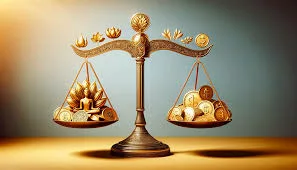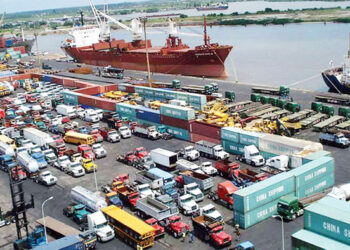Corruption continues to be a significant hurdle for Nigeria, casting a long shadow over the nation’s progress and tarnishing its reputation. Despite this, there is an ongoing fight to uphold integrity, achieve justice, and promote prosperity. While the battle against corruption is far from over, there remains hope for a better future through sustained efforts and collective determination.
Corruption has deeply infiltrated Nigerian society, appearing in various forms across all sectors. From minor bribes to large-scale financial fraud, its consequences are profound. It erodes public trust, weakens institutions, and hinders social and economic growth. Tackling corruption is not only a moral responsibility but also crucial for Nigeria’s development and long-term stability.
The economic impact of corruption is immense. Billions of naira meant for essential services like infrastructure, healthcare, education, and social welfare are siphoned off by corrupt individuals, thereby perpetuating poverty and inequality and stalling economic advancement. Combating corruption is, therefore, necessary to foster inclusive growth and improve the nation’s well-being.
Over the years, Nigeria has made strides in addressing corruption by establishing key institutions such as the Economic and Financial Crimes Commission (EFCC) and the Independent Corrupt Practices and Other Related Offenses Commission (ICPC). While these institutions have achieved some success, the fight against corruption remains an ongoing battle that demands continuous effort and vigilance.
Citizens play a central role in the fight against corruption. Every Nigerian can contribute by adhering to ethical practices, refusing to participate in corrupt activities, and reporting any wrongdoing they encounter. Whistleblowers, in particular, have been instrumental in uncovering corrupt activities and recovering stolen funds, underscoring the power of individual action in this battle.
In addition to personal accountability, structural reforms are vital for effectively curbing corruption. Strengthening institutions, ensuring judicial independence, and promoting transparency and accountability within the government are key measures that can create an environment where corruption is less tolerated and harder to carry out.
Collaboration with the global community is also essential. Nigeria needs to seek international cooperation in recovering stolen assets and prosecuting corrupt individuals who have fled the country. By working together, Nigeria and its global partners can reinforce the message that corruption will not be tolerated, both within the country and on the international stage.
The fight against corruption is a long-term journey that requires persistence and cooperation. While progress may come gradually, every step toward eradicating corruption brings Nigeria closer to unlocking its full potential as a fair, prosperous, and respected nation.
As Nigeria continues on its path toward a corruption-free society, it is critical for all stakeholders—citizens, government, institutions, and the international community—to remain committed to this goal. Through collective determination and integrity, Nigeria can defeat the scourge of corruption and pave the way for a brighter future for generations to come.
















